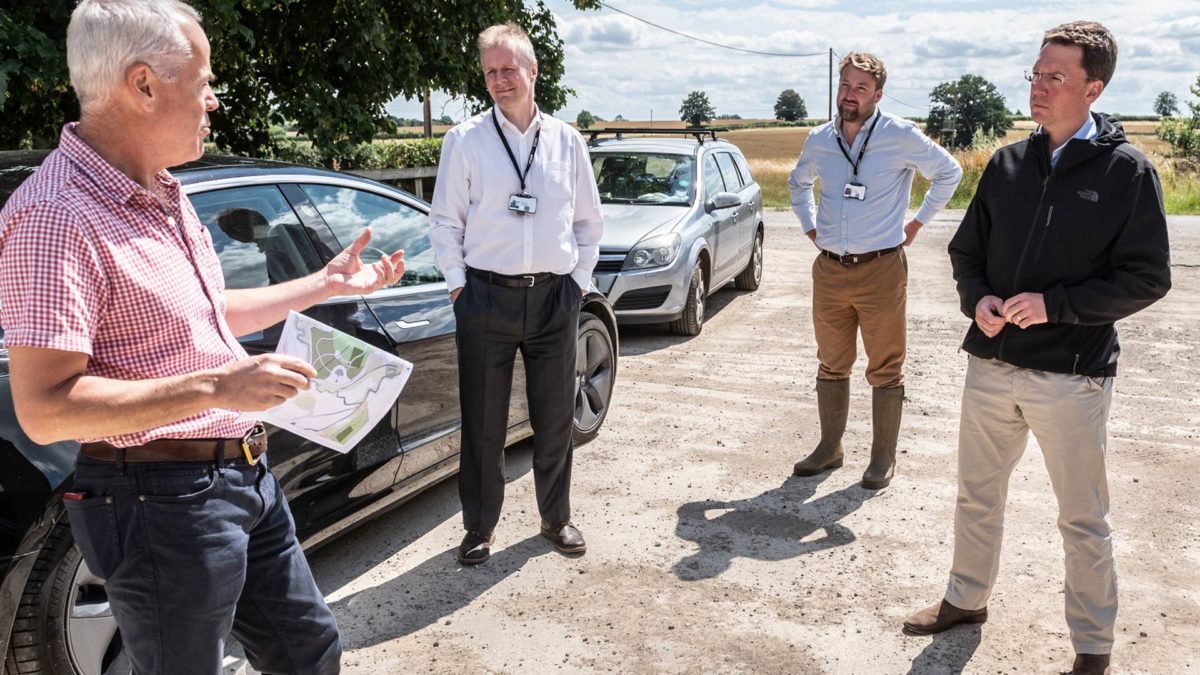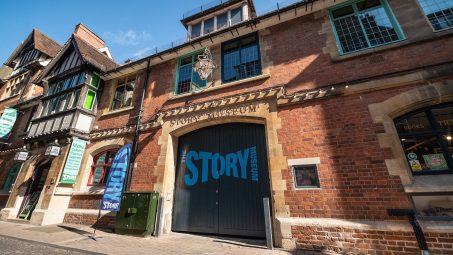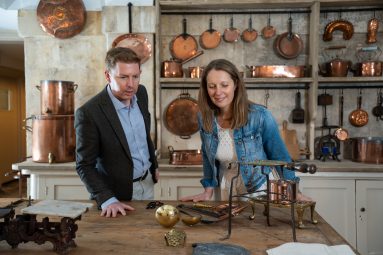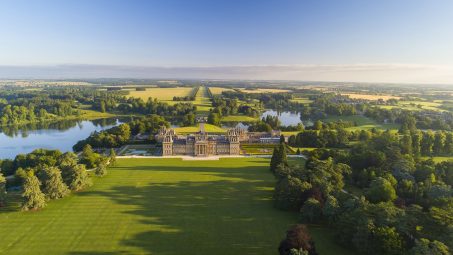
MP Impressed With Blenheim’s Environmental Initiatives
MP Robert Courts has praised Blenheim Estate’s commitment to the environment during a visit to the Oxfordshire UNESCO World Heritage Site this week.
The MP for Witney and West Oxfordshire was given a tour of the estate, which included a visit to the site of a new 150-hectare woodland being planted as part of a partnership with construction firm Morgan Sindall.
Work on the new woodlands begins in November and will eventually see more than 270,000 trees being planted and a series of public footpaths and cycleways being created.
In addition to creating a major new natural habitat for wildlife, the woodlands will sequester 25,000 tonnes of carbon as part of a 25-year programme.
During the tour he also met with representatives from Cotswolds-based forestry company, Nicholson’s, who are helping to plant and care for the new woodlands.
He also found out more about Blenheim Estate’s ground-breaking Land Strategy from Estates’ Director Roy Cox.
The strategy has five main goals: Connecting communities with a network of paths and cycle routes to promote green travel, sharing the health and wellbeing benefits of land with local communities.
Valuing natural capital to create new income streams. Demonstrating the role of carbon-negative land management in tackling climate change, and forming partnerships with artisans and producers to start re-delivering economic gain to the local area.
The Land Strategy’s long-term aim is for the Oxfordshire UNESCO World Heritage Site to become the UK’s first estate to demonstrate carbon-positive land management.
“It is always a pleasure to come to Blenheim and I was particularly impressed to learn more about the sheer scale of the estate’s commitment to the environment,” he said.
“Chief Executive Dominic Hare and his entire team has developed a huge range of positive programmes and new initiatives that make Blenheim among the most sustainable and forward-thinking estates in the country.
“I was also very interested to see how much Blenheim is working with local communities and supporting a host of different projects and organisations within the area.
“Blenheim has a huge part to play in the continued success and prosperity not only of West Oxfordshire but the wider region, and to see how seriously they take their responsibility and also how committed they are to sustainability and valuing their natural resources is incredibly heartening,” he added.
During his visit the MP was also able to view some of Blenheim’s natural beehives. The hives, which are made from wood gathered on the estate, are home to colonies of highly endangered wild native bees.
The natural hive initiative is part of Blenheim estate’s wider commitment to developing its ‘natural capital’.
Natural Capital is a radical new model, which assigns importance to precious resources, like good air, water, soil, woodland, green spaces and biodiversity, in order to promote the best long-term decisions.
About Blenheim Estate
At Blenheim Estate Land we know that our land is precious and finite, but cared for properly its benefits can be limitless. Yet today there are fresh challenges like climate change, an aging population and increasing urbanisation.
So our approach – spanning a number of projects – needs to be as sophisticated, enduring and holistic as those issues we face.
By adopting new methods of valuing our natural capital we can view our land resources as part of an ecosystem. An ecosystem whose benefits extend to the air we all breathe, the green transport solutions that connect our communities, the physical and mental health we enjoy, and the quality of the food we consume.
More in Attractions

The Story Museum: Bringing Stories to Life in Magical Ways
The Story Museum is no ordinary museum. Nestled in the heart of Oxford, this unique, immersive space is dedicated to celebrating the power of storytelling in all its forms. Whether through interactive exhibitions, live performances, or creative workshops, The Story Museum is on a mission to enrich lives—especially young lives—through the magic of stories.

HENLEY FESTIVAL 2024 UNVEILS PIONEERING VISUAL ARTS SHOWCASE
10 – 14 July 2024 | henley-festival.co.uk | #HenleyFestival | @henleyfestival
Henley Festival Presented by Westcoast – the UK’s only boutique black-tie festival – is delighted to reveal this year’s dazzling visual arts programme, featuring one of Britain’s best-selling figurative painters Mark Demsteader, the Doug Moran National Portrait Prize and Archibald People’s Choice Award-winning artist Esther Erlich, and sculptor Holly Bendall, who creates striking bronzes including a Greenpeace-supported permanent public installation that can be experienced in Porthleven.

Blenheim Palace announces annual Jousting Tournament dates
This spring, step back in time at Blenheim Palace as the UNESCO World Heritage Site transforms into an action-packed battlefield for its annual Jousting Tournament.
From this author

Experience ‘Life Below Stairs’ at Blenheim Palace: all-new visitor experience unveiled
From 29th March, step into history as Blenheim Palace unveils ‘Life Below Stairs’ – a groundbreaking new visitor experience that brings the hidden world of Victorian service to life like never before. The experience is set within some of the original working kitchens, open to visitors for the very first time.

Christmas and 2026 group bookings announced at Blenheim Palace with trade pricing...
Blenheim Palace is delighted to announce the highly-anticipated theme of Christmas at Blenheim for 2025 – Palace of Oz where groups can enjoy an enchanting festive experience with exclusive trade pricing.

Britain’s Greatest Palace like you’ve never seen it before: Blenheim Palace announces...
Blenheim Palace has announced a series of once-in-a-lifetime views and visitor experiences which will only be available for a limited time due to the launch of its most ambitious restoration project to date.

